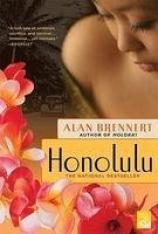Reading Group Guide
Discussion Questions
Honolulu

1. How do you feel about Jin’s decision to leave Korea? What might you have done in her place? How do you regard the various decisions she made after learning the truth about her fiancé in Hawai'i?
2. How would you interpret the poem by Hwang Chini on page 26 within the context of the novel?
3. Korea and Hawai'i were both small countries, in strategic locations, that came to be dominated by more powerful nations. In what other ways were the Korean and Hawaiian societies of the time both similar and different?
4. Compare and contrast the lives of a Korean kisaeng and an Iwilei prostitute.
5. How does the author weave real people and events into the lives of his fictional characters, and how do they contribute to your understanding of Jin’s circumstances? If you were already familiar with any of the historical figures, how do you view them after reading the novel? For example, the author is uncertain of May Thompson’s fate in real life --- what do you think she might have done after leaving Honolulu? What do you think about the Governor’s decision to commute the sentences of Lt. Massie and the others convicted in Joe Kahahawai’s death?
6. How have Americans’ attitudes toward immigrants changed --- or not changed --- since the 1900s?
7. The biography Passage of a Picture Bride describes its real-life subject as having a “positive outlook and broad-mindedness, unusual traits among Korean women” of that time. How does this statement apply to Jin and her fellow picture brides?
8. What binds Jin and her “Sisters of Kyongsang” together, other than the kye? What purpose do they serve in each other’s lives?
9. What is the significance of the patchwork quilts not just to Jin’s life, but to the life of Hawai'i itself?
10. At the end of the novel, Jin says “Hawai'i has often been called a melting pot, but I think of it more as a ‘mixed plate’ --- a scoop of rice with gravy, a scoop of macaroni salad, a piece of mahi-mahi, and a side of kimchi. Many different tastes share the plate, but none of them loses its individual flavor, and together they make up a uniquely ‘local’ cuisine. This is also, I believe, what America is at its best --- a whole great than the sum of its parts.” What do you believe? What is gained and what is lost --- both in Hawai'i and in the U.S. as a whole --- in becoming a multicultural society? How might this be particularly relevant to Native Hawaiians?
Honolulu
- Publication Date: February 22, 2013
- Paperback: pages
- Publisher: St. Martin's Griffin
- ISBN-10: B007YXTK66
- ISBN-13: 9780312606343






